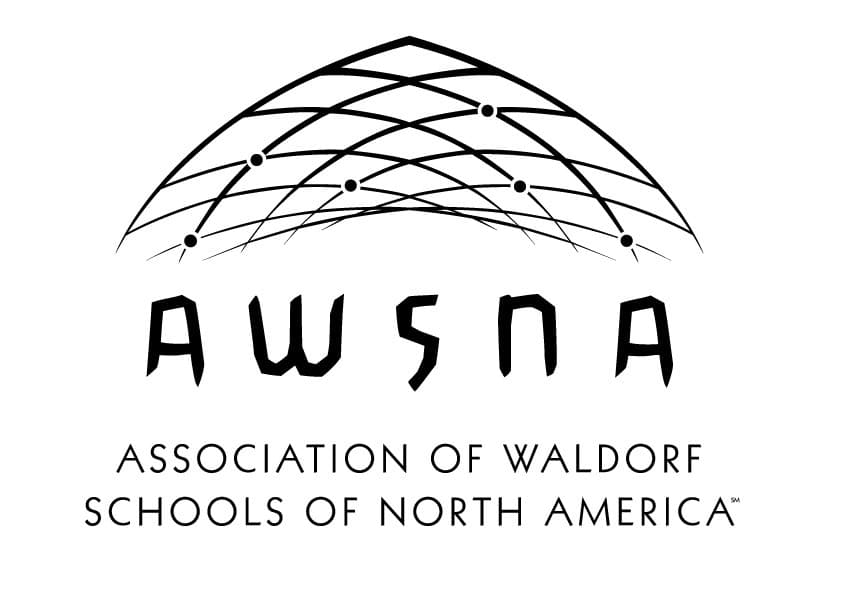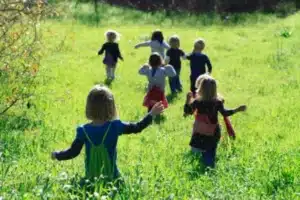INSPIREDTO TEACH
Thinking about Teaching in a Waldorf School?
Does the idea of establishing meaningful relationships with your students and moving up through the grades with them on their educational journey excite you?
Are you interested in being part of a school community where colleagues share a common vision and goals for the students, and partner in creating curriculum and policy?
Are you ready to be empowered to share your unique talents and creative inspirations in the delivery of curriculum?
Are you interested in and open to working with the foundational principles and pedagogy of Waldorf education?
Are you inspired by teaching in a classroom in which creativity flourishes?
Waldorf Teacher Preparation
Waldorf teacher education prepares individuals to educate children through the lens of Waldorf principles. Many schools require teachers to have undertaken this preparation prior to being hired, while other schools hire teachers committed to teacher preparation while teaching. AWSNA member teacher training institutes are organizations that engage in a rigorous process of self-study and peer assessment to ensure that each meets AWSNA criteria. While levels of membership vary, each institute follows the principles of Waldorf education and each meets minimum expectations for their program components, which include courses in:
- Inner/Self Development
- Foundations of Waldorf Pedagogy and Child Development
- The Art of Teaching (including Curriculum Content and Methodology)
- The Arts
- Professional and Social Aspects of School Governance
- Practical Experiences in the Classroom (Observation, Student Teaching, Mentored Teaching)
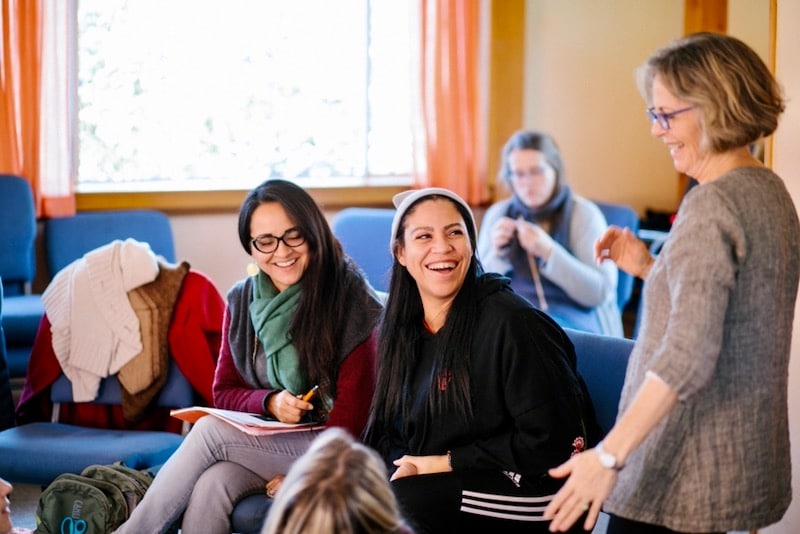

AWSNA institutes offer teacher education programs in a wide variety of formats. Some serve a more local audience while others require students to travel to what may be more distant locations for all or part of their study. Some programs are fully in person and others offer a combination of in person and distance learning.
What Waldorf Teaching is all About
What Waldorf Teaching is all About
Rudolf Steiner, the founder of Waldorf education, had a unique perspective on child development. He believed that children should be educated in a holistic and balanced way, taking into account their physical, emotional, and spiritual needs. Here are some key ideas from Steiner's philosophy of child development (“anthroposophy”) out of which Waldorf teachers teach:
Threefold Nature of the Human Being: Human beings have three distinct aspects - the physical body, the soul or emotional life, and the spiritual or higher self. Waldorf teachers work out of this understanding as they guide their students to their full potential as human beings in a classroom environment that supports the growth and development of all three distinct aspects of the human being.
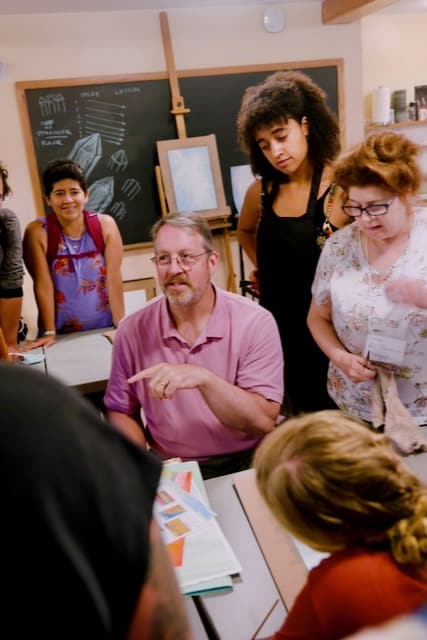
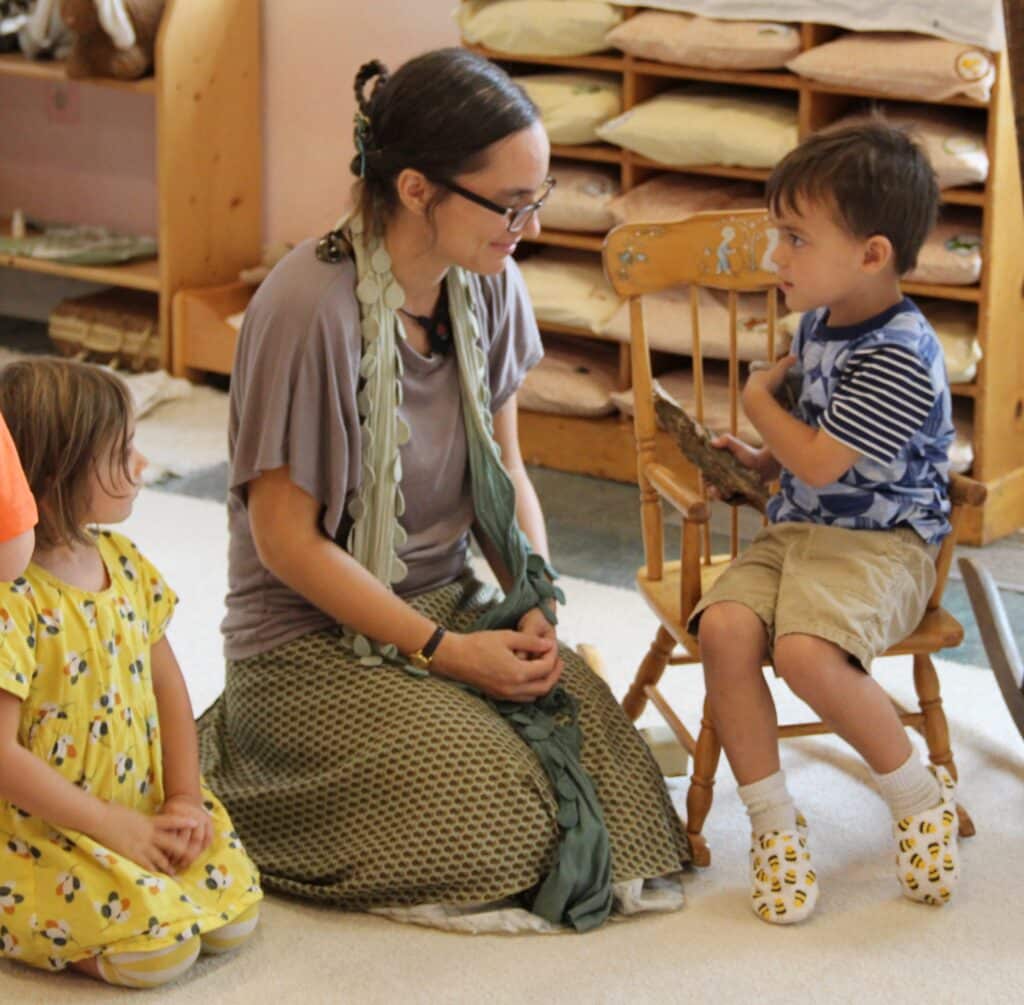
Developmental Stages: There are three main stages of child development: Early childhood (birth to age 7), middle childhood (ages 7 to 14), and adolescence (ages 14 to 21). In Waldorf education, the how, when, and why teachers teach matters just as much as what they teach. Waldorf teachers play distinct roles in the children’s education, forming and creating the experience of the children in the early childhood classroom, shaping the experiences and explorations of the children from grades one to six, and supporting the growing independence of thinking in the middle and high school years.
Play and Imagination: We all learn best through imaginative exploration, play, and finding the joy in our work together. Over the years this develops creativity, problem-solving skills, and the capacity to work collaboratively with others. The focus in the early childhood classroom is on play and working well with others. As the curriculum moves into academic work in the grades and into challenging college preparatory work in the middle and high schools, we continue to include artistic work, diverse experiences, and a spirit of excitement and inquiry around all of our subjects.
Arts and Handwork: Artistic activities such as painting, drawing, music, and handcrafts are central to the Waldorf approach to education. Artistic experiences deepen the academic understanding of the classroom subjects, provide the opportunity to work and collaborate with classmates, and allow individual expression.
Nature and Outdoor Education: Unstructured outdoor play brings challenges and experiences so beneficial that they cannot be replaced by any other activity. Whether for play, observation, appreciation, scientific exploration, or purposeful activity, time outdoors is absolutely essential to learning and child development.
Waldorf Schools are Self-Administered. This work is strengthened by cultivating a shared understanding and picture of social interaction. Faculty, administrative staff, and board members work collaboratively to ensure that effective practices and positive school cultures exist.
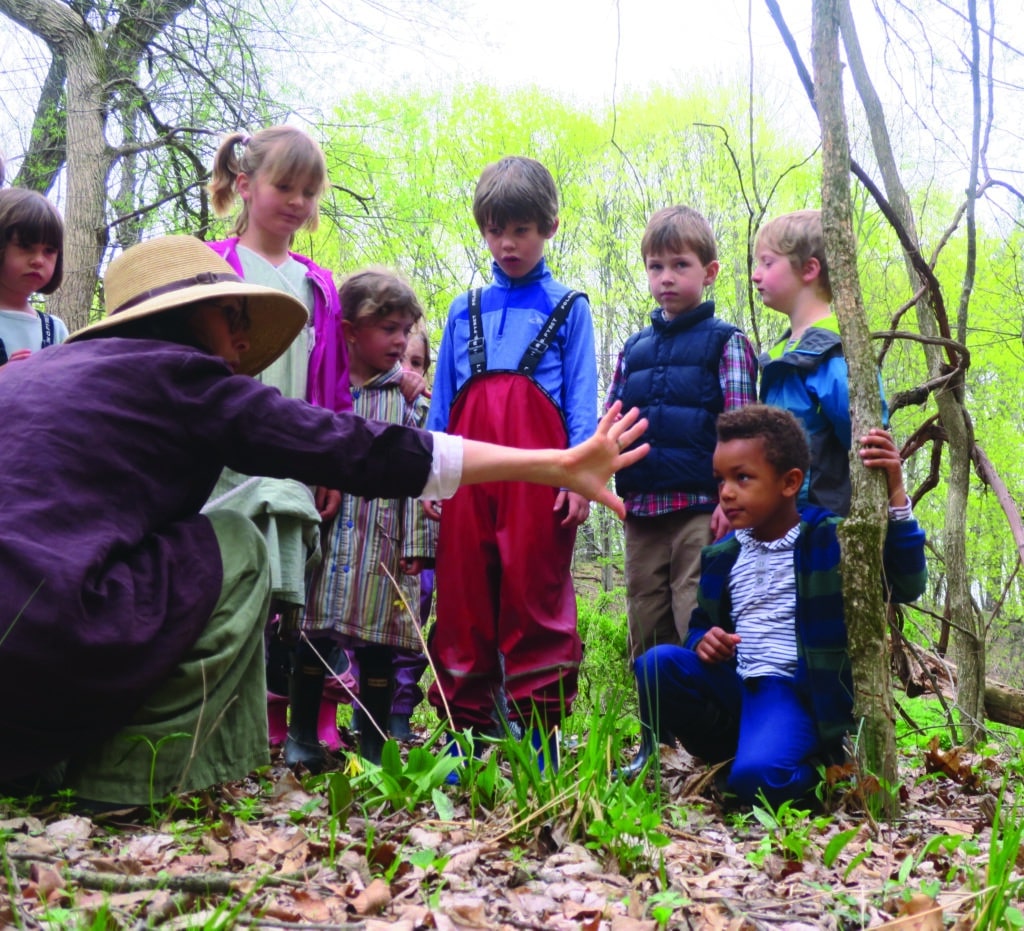
Teacher Training Institutes

PAYING FOR IT
These resources can help fund your training:
- AWSNA: Offers annual, renewable loans and loans-to grants
- Teacher Training Institutes: Offer myriad financial aid packages and payment arrangements
- Waldorf Schools: Often provide professional support funding for their employees
- Alums: Additional support may be available for Waldorf school alums who pursue teacher training
- US Military Personnel and Veterans: Resources are available that honor military service
- Canadian students: Some resources exist just for Canadian citizens
- Personal Resources: Don't forget to consider options within your own support network
Gather some of these resources together and you'll be on your way to funding your education! Click here for more details.
educator news
Media Taking Notice of Waldorf Education
While there is much news coverage of our Waldorf schools using outdoor classrooms, media outlets are also taking note of Waldorf education’s focus on multidisciplinary coursework, wellness and nature. The Santa Barbara Independent recently highlighted the The Waldorf School of Santa Barbara in the article — Waldorf Education Honors the Head, Heart, and Hands — touching on Waldorf education’s century-long history […]
Encouraging Children to make Human Connections
CityTV’s Breakfast Television broadcast in Toronto, Canada, has interviewed Jennifer Deathe, Admissions Manager at Waldorf Academy — a Pre-k through Grade 8 Waldorf school in Toronto. During the broadcast, How to encourage kids to focus on making human connections with Jennifer Deathe, Jennifer shares device-free activities for children and talks about managing screen time to prioritize human connection. Jennifer asks […]
The Case for Going Outdoors All Winter
The pandemic has made a new case for winter outdoor activity. As British fellwalker, guidebook author and illustrator, Alfred Wainwright, said, “There’s no such thing as bad weather, only unsuitable clothing.” It seems that many more are willing to embrace this motto now that indoor activities are curtailed. News coverage ranges from The New York Times recommending […]
